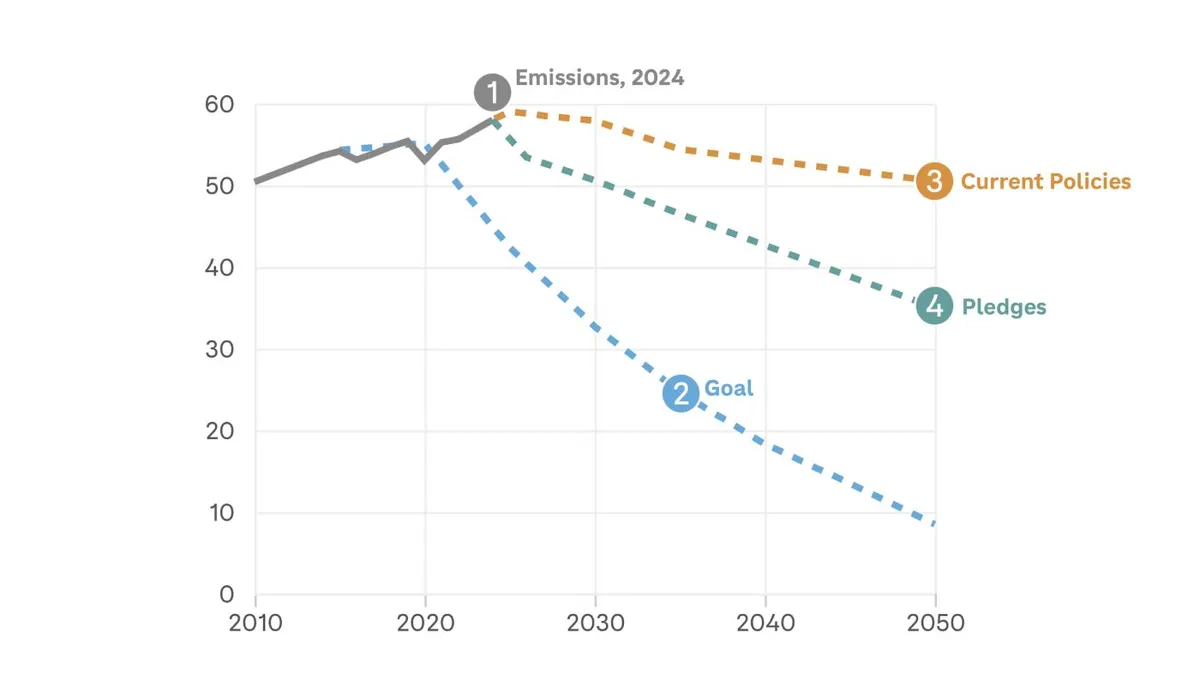
Countries from around the world have convened in Brazil for the COP30 summit, an important event aimed at assessing progress in combating climate change. As with previous summits, the negotiations are commencing under less-than-ideal circumstances, as many nations are falling short of their commitments to reduce heat-trapping emissions resulting from the burning of fossil fuels.
A recent report from the United Nations reveals that global efforts to address climate change have stagnated over the past year. If the current trajectory continues, the planet is projected to warm by approximately 5 degrees Fahrenheit by the end of this century, compared to pre-industrial temperatures recorded in the mid-1800s. This projection shows a slight improvement from last year's estimate of 5.5 degrees Fahrenheit; however, much of this progress could be undermined by the actions of the U.S. government.
The Trump Administration's absence of high-level officials at the COP30 talks has raised concerns among global leaders. On his first day in office, President Trump announced the U.S. withdrawal from the Paris Agreement, a landmark accord established in 2015 that aims to unite nations in the fight against climate change. Initially, the U.S. played a crucial role in the negotiation of this agreement, which strives to limit global warming to a critical threshold of 1.5 degrees Celsius (approximately 2.7 degrees Fahrenheit) by the year 2100.
Exceeding this temperature increase poses severe risks, according to scientific research, leading to significantly damaging climate impacts. These include intensified storms with extreme rainfall, stronger hurricanes, and dangerously high heat waves. Additionally, vulnerable ecosystems, such as coral reefs, face an uncertain future. Alarmingly, the United Nations Environment Programme predicts that the world is likely to reach the 1.5 degrees Celsius threshold within the next decade.
To prevent further increases in global temperatures by the end of the century, emissions must be reduced by 55% by 2035 compared to 2019 levels. However, if countries adhere to their current pledges for emissions reductions, the actual decrease is expected to be only around 12% by 2035. In the United States, emissions from fossil fuel combustion have seen a decline recently, attributed to the closure of aging coal power plants and the rise of renewable energy sources like solar and wind.
As renewable energy projects have become more cost-effective than new fossil fuel plants, there is potential for further progress. Nonetheless, the Trump administration has branded climate change as a hoax and is actively promoting fossil fuel development, which includes rolling back tax credits for solar energy and halting offshore wind projects. Studies indicate that these policy changes could hinder U.S. emissions reductions, which were previously projected to decrease by 38-56% by 2035 but may now only see a reduction of 26-35%.
During a speech at the United Nations General Assembly in September, President Trump warned world leaders, stating, "If you don't get away from the green energy scam, your country is going to fail." This statement underscores the significant divide in international climate policy and the urgency for collective action to address the looming challenges posed by climate change.